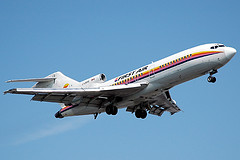There are many qua|ities that make a good doctor, but you shouldalso remember to overrate experience.
What makes a good doctor
There are many qua|ities that make a good doctor, but you shouldalso remember to overrate experience.
By Dr ALBERT LIM KOK HOOI
A PROFESSOR of mine back in medical school, not otherwise distinguished for academic excellence or linguistic style, was credited with one wisecrack. That was his only claim to fame and glory. He denigrated a hoary colleague of his by saying, "That doctor has 40 years of experience. He has the same one year's experience repeated 40 times."
I think he has something there. Patients do overrate experience in a doctor. Of course experience counts for something. But it is far from everything. It is not even near the top of
the attributes of a doctor I look for. Certainly not when it is an unthinking experience that
is more of a slog and a plod than anything else.
When is experience important? It takes an experienced doctor to get a patient and his carets to come on board the team. It is pointless to prescribe an effective treatment when the patient is reluctant and resentful about taking it.
In a case where textbooks and journals are not helpful or available, the doctor will bring
his experience to bear. I suppose good bedside manners are honed by years of experience. A
surgeon will need to perform a particular operation several times before he is adept and
skilful at it. He climbs the "learning curve".
Surgery is of course much more than cutting and sewing. Two of my gurus, Bernard Fisher and Umberto Veronesi, are surgeons. They went far beyond operating on patients with breast cancer. They thought long and hard about the natural history of breast cancer.
Bernie is alive and well. He still lends his wisdom and advice to the current crop of breast oncologists. Umberto has passed on. We acknowledge the pioneering work he did on breast conserving surgery. We, who treat breast cancer, owe a debt of gratitude to these two.
Experience should be varied. Experience should leave us thinking. Experience should make us learn. However much experience a doctor may have, it is still limited to the minutes and hours of his practice and what his brain makes of it. That is so little and confining!
More important than an individual's experience is the pooled documented experience. Notes (well kept I hope) written by tens and hundreds of thousands of doctors are collected, collated and analysed. Articles are written about this invaluable collective experience and duly published.
Experience should be combined with wisdom, judgement and knowledge. Wisdom is something we have lost in our overloaded world of information.
I can tell you what wisdom is not. It is not information, it is not knowledge, it is not skills and it is certainly not experience. It is not measurable. I leave it to you in your infinite wisdom (ah-hem) to decide what wisdom is.
Judgement is equally difficult to calibrate.We also know it by its absence. Think of Bush,
Cheney and Rumsfeld. Think of the judgements handed down by the law courts. Think of a drunk driver. Wisdom and judgement are to be quietly reflected upon rather than shrieked about in a sanctimonious manner.
Knowledge is an easier customer. Medical knowledge and scientific knowledge are indispensable to a doctor. The more journals he reads, the less likely he is to shortchange a patient by giving outdated treatment.
The more seminars and conferences he attends, the more he learns of what his "cutting edge" colleagues are thinking about and doing. In many countries, doctors are tested every year on their knowledge and skills before their license to practise is renewed.
I will go one step further when speaking of a doctor's knowledge, skills and expertise. In my opinion every doctor must be well versed with statistics and mathematics. How else can he make sense of the articles in contemporary medical journals strewnwith hazard ratios, pvalues and confidence intervals?
Barack Obama was not elected because of his experience. The American people decided
he had the wisdom and good judgement to lead them andthe world.
Alexander the Great conquered almost all of what was known of the western world in his early 30s.
Two thousand years ago, a wise, holy, politically-savvy man persuaded and preached and
pontificated. His influence on Western art, music and literature reverberates till today.
And he did all that ~in his twenties and early thirties.
Emily Dickenson wrote beautiful and moving poems. She was a recluse in Amherst, Massachusettes, with a fertile imagination.
Shakespeare himself did not travel that much in Europe and Italy. His plays set in Italy
(The Merchant of Venice, Julius Caesar, Romeo and Juliet, The Two Gentlemen of Verona, etc)
would make us think he lived and experienced the Italian way of life for decades.
The good doctor is well-mafinered, experienced, wise, creative, of good judgement and most of all, knowledgeable, scientific and mathematical.
Met any lately?
Dr Albert Lira Kok Hooi is a consultant oncologist. For further information, e-mail star-health@thestar.com.my. The views expressed are those of the writer and readers are advised to always consult expert advice before undertaking any changes to their lifestyles. The Star does not give any warranty on accuracy, completeness, functionality, usefulness or other assurances as to the content appearing in this column. The Star disclaims all responsibility for any losses, damage to property or personal injury suffered directly or indirectly from reliance on such information.
Labels: doctor


